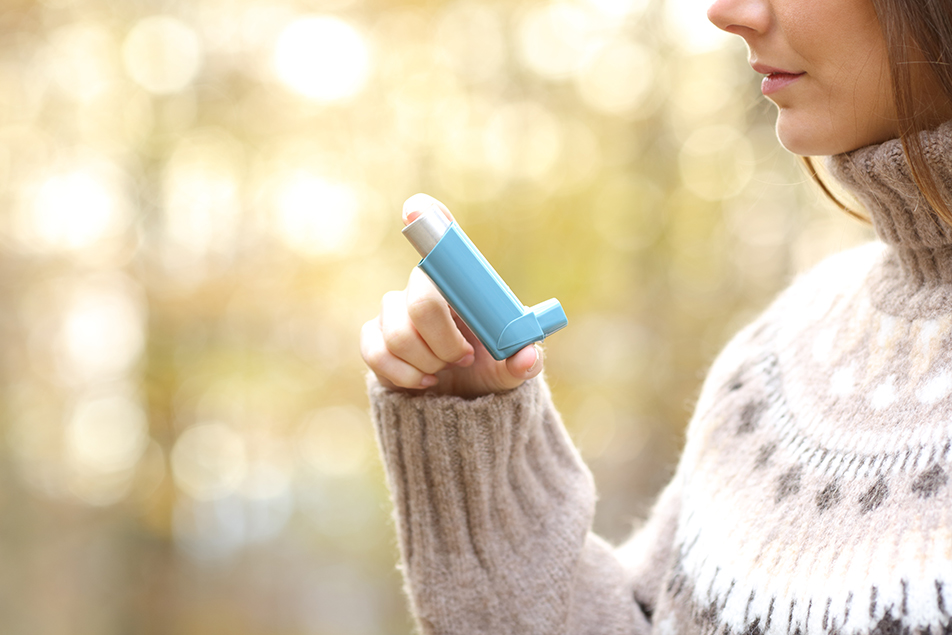
This post was written by Heather Willison, NP, PPG – Allergy, Asthma & Immunology.
Asthma is a chronic lung condition in which the airways may become narrow due to swelling and inflammation, as well as increased mucous production. These narrowed airways make it difficult to breathe, and can result in coughing, wheezing, shortness of breath and chest tightness.
An important part of maintaining asthma control is identifying what might trigger your asthma symptoms to flare. Winter months can be especially difficult for those with asthma for a variety of reasons. Of course, this is when we see more viral and bacterial respiratory illnesses. In addition to dry, cold air, respiratory illnesses can also make asthma more difficult to control.
Managing triggers
Just because the winter season has its share of setbacks, there are still actions those with asthma can take to maintain control over the condition. Suggestions for preventing asthma flares during colder months include:
- Get the flu vaccine. While you may still get influenza despite being vaccinated, the symptoms are often less severe and of a shorter duration.
- Good hygiene helps. Wash your hands frequently and avoid those showing signs of respiratory illness.
- Stay home if you are coughing or sneezing. There’s no need to spread your germs to others.
- Accessorize accordingly. Cover your mouth and nose with a lightweight scarf to help warm the air you are breathing in before heading outdoors. You can find microfiber, moisture-wicking scarves at sporting goods stores that offer excellent breathability, while protecting you from inhaling cold air.
- Skip the chill. Consider staying indoors on days when the temperature hits 10 degrees or below.
- Be proactive. If you have plans to be out in the cold for a prolonged period, using your rescue inhaler (albuterol) 10-15 minutes before heading outdoors can be beneficial.
- Sweat, don’t freeze. Exercise indoors, if possible, when the weather turns cold. Many indoor shopping malls offer walking tracks and there are free exercise programs available to stream online. Find one that doesn’t require any equipment, just a willingness to get up and move. If no indoor options are available to you, do your warm-up exercises inside for 10-15 minutes before heading out and remember to cover your mouth and nose with a breathable scarf.
Of course, consistent use of your asthma controller medication(s) is essential for maintaining good asthma control. The team at PPG – Allergy, Asthma & Immunology is here to offer excellent care should you need assistance. We don’t want you (or your children) to miss out on the fun winter can bring.




